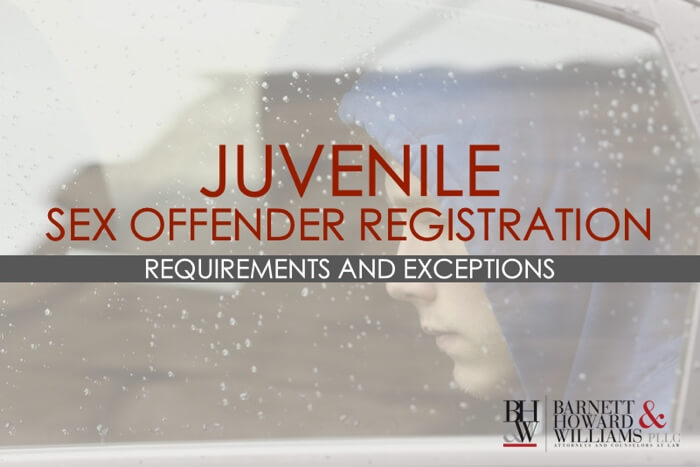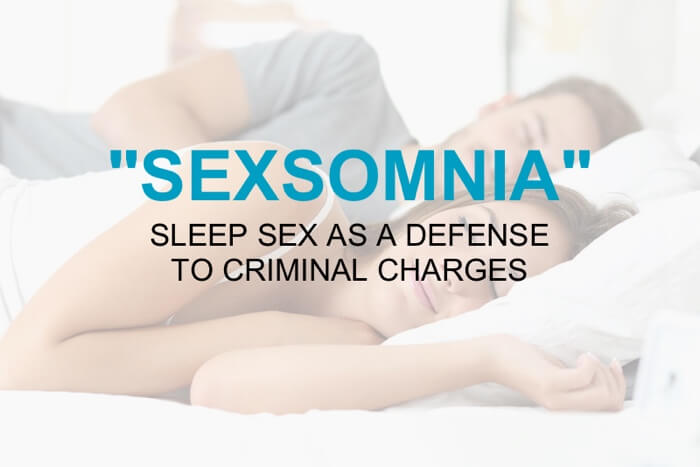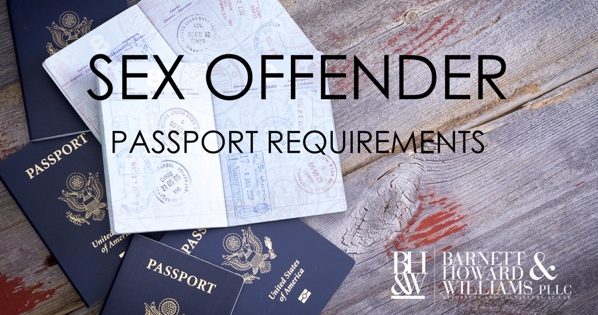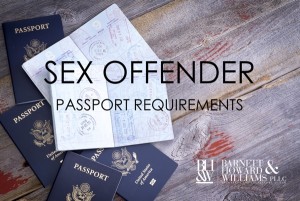Alcohol and Memory: An Interview with Texas Forensic Psychologist, Dr. Kelly Goodness, Ph.D
 As you can probably imagine, many criminal cases involve events that occur when people are intoxicated. This can be especially true for cases involving allegations of sexual offenses. In these alcohol-fueled situations, the issue of memory can play a large part in the case. When we encounter intoxication and memory issues in sexual assault cases, we often employ the assistance of a forensic psychologist to serve as either an expert consultant or expert witness. One of the best in her field is Dr. Kelly Goodness of Keller, Texas. Dr. Goodness is an expert in alcohol and the brain, including the difference between “pass out” and “blackout” evidence. She is one of the most highly employed experts for alcohol-related sexual assault cases involving members of the U.S. Military. What follows is an interview that we conducted with Dr. Goodness regarding how alcohol can impact a person’s memory and how it can apply to the sexual assault context.
As you can probably imagine, many criminal cases involve events that occur when people are intoxicated. This can be especially true for cases involving allegations of sexual offenses. In these alcohol-fueled situations, the issue of memory can play a large part in the case. When we encounter intoxication and memory issues in sexual assault cases, we often employ the assistance of a forensic psychologist to serve as either an expert consultant or expert witness. One of the best in her field is Dr. Kelly Goodness of Keller, Texas. Dr. Goodness is an expert in alcohol and the brain, including the difference between “pass out” and “blackout” evidence. She is one of the most highly employed experts for alcohol-related sexual assault cases involving members of the U.S. Military. What follows is an interview that we conducted with Dr. Goodness regarding how alcohol can impact a person’s memory and how it can apply to the sexual assault context.
______________________
Q: Dr. Goodness, How is Alcohol Related to Memory?
A: Alcohol is a potent amnestic agent. Beginning with just one or two drinks, alcohol can produce detectable memory impairments. As the dose increases, so does the potential magnitude of the memory impairments, all the way up to the total inability to recall events during a drinking episode, otherwise known as a blackout.
Q: How does alcohol disrupt memory formation?
A: There are three general processes involved in long-term memory formation, all of which can be impacted by alcohol. First, information must be perceived by one or more of the senses (sight, hearing, taste, smell, and touch) to form a sensory memory which can last a few seconds. Second, if concentrated on for more than about eight seconds, sensory memory can be transferred to short-term memory to be retained. Short-term memory can last from seconds to minutes, depending on distractions and ability to rehearse or repeat the information. Third, once some kind of association or sufficient repetition has occurred; information can be consolidated, encoded and transferred from short-term memory into long-term memory which then makes the information available for later recall.
Alcohol, affects all stages of the memory process, but the primary effect is on the transfer of information from short-term to long-term memory storage. The drinker can recall long-term memories that were established before they became intoxicated, but their ability to transfer information into long-term storage can begin to degrade with just one or two drinks. As the dose of alcohol increases, the impairment increases and can culminate in blackouts. When blackouts occur the individual can participate in complex activities and even very emotionally charged events that they later cannot remember.
Q: You mentioned blackouts. What exactly is a blackout?
A: Blackouts are periods of amnesia, caused by excessive consumption of alcohol, during which a person actively engages in behaviors, but the brain’s ability to create memories for what transpires is impaired or non-existent. This leaves holes in a person’s memory that can range from spotty recall for events of the previous night (or drinking episode) to the utter absence of memory for large portions of an evening. The person is still able to carry on conversations, engage in activities and respond to others. They just will not recall some or all of what occurred.
Q: Are there different types of blackouts that a person can experience?
A: Yes. There are En Bloc Blackouts and Fragmentary Blackouts. Blackouts are classified based on the extent of amnesia. The amnesia can be total (“en bloc”) or partial (“fragmentary”).
En Bloc blackouts are classified by the inability to later recall any memories from the intoxication period, even when prompted or given cues.
- No matter what happens, you can never recall it.
- The information was never recorded so recall is not possible.
- Memory of what transpired cannot be restored through hypnosis or any other means because no memory ever truly existed.
- It is difficult to determine the end of this type of blackout as sleep typically occurs before they end.
Think of a loved one you have known who has Alzheimer’s. They may tell you what they had for dinner and five minutes later tell you the exact same thing. They never recorded the event of initially informing you in the first place, so they tell you again. En Bloc blackouts are essentially the same phenomenon – just with a different cause.
Fragmentary blackouts are characterized by the inability to recall some events from an intoxicated period, but not all events.
- The person may be unaware that memories are missing until reminded by others of the existence of these “gaps” in memory.
- Cues can help them remember at least some of what happened because at least some of the information actually was recorded.
- They may have more snapshot type recall and it may not be in sequential order.
- Research indicates fragmentary blackouts are far more common than en bloc blackouts and likely involve alcohol-induced deficits in contextual memory.
Q: Is a blackout different from passing out?
A: Yes, they are different. Although many people refer to “passing out” as going to sleep following ingestion of alcohol, when I say “pass out” in my testimony or describing the research, I am referring to the more formal definition as used in the field of alcohol treatment, in which a pass out is a loss of consciousness due to excessive alcohol intake. By definition, blackout and pass out are mutually exclusive: a blackout is amnesia for the events of any part of a drinking episode, without loss of consciousness. A person in blackout continues to interact and perform complex activities, but has amnesia for these events. A person who is passed out is unconscious and is not having any behavioral experiences to record.
Q: Can blackout and pass out co-occur?
A: Yes. Passing out and blacking out can co-occur. Under the right conditions, a person who consumed alcohol to the point of passing out can be awakened from sleep, engage in activities and have a blackout for that time period.
Q: Can you tell if someone is having a blackout?
A: Determining whether someone is in a blackout state from their behavior alone is next-to impossible. To outside observers, the person may appear to be aware and functioning well enough. During blackouts, people can participate in events ranging from the mundane, like eating food, to the emotionally charged, like fights or serious aggression, with little or no recall. They can drive a car, have a normal conversation, or engage in sexual relations.
Even loved ones are unlikely to know. We know that the wives of alcoholics who are known to be prone to blackouts may only know their husband was blacked out when he does not recall information the next day.
Research designed to bring about blackouts shows that those who are in the midst of an En Bloc blackout can easily recall things that have occurred within the last 2 minutes, yet they cannot recall anything that occurs during the episode prior to this period.
Q: From your knowledge of the research on this topic, what causes blackouts?
A: Blackouts are caused by the selective effects of alcohol on specific brain systems and involve a breakdown in the production and utilization of proteins and neurotransmitters in the brain. Blackouts can occur from rapid consumption of alcohol, such as guzzling, chugging, or shots and are more likely with consumption of hard alcohol or the combination of hard alcohol and beer, versus beer alone.
Q: Is there a typical Blood-Alcohol Concentration (BAC) at which a blackout is likely to occur?
A: Blackout BAC’s are individual dependent, but we know the blood-alcohol level is typically very high (above 0.25) when a blackout occurs. Some recent studies indicate .28 to .30 as the median BAC at which blackout is likely to occur. Still, a person can experience a fragmentary blackout with a BAC as low as .08 and an en bloc blackout with a BAC of.14 and above. These can only be used as estimates.
Q: Is intoxication level synonymous with blackouts?
A: No. Intoxication depends not only on the blood alcohol level, but on the rate of increase and tolerance of the individual. One may have a blackout without appearing grossly impaired. One may be drunk with poor judgment and control but not blackout. This is why even eye-witnesses may be (and usually are) unaware that a person is having a blackout.
Q: Are there any known risk factors for blackouts?
A: Yes. The following are risk factors typically associated with alcohol blackouts:
- Drinking on an empty stomach as there is less food to absorb alcohol
- History of serious head injury
- Heavy drinker – but to be sure – a blackout can happen with a single drinking episode and naïve drinkers are not immune
- History of prior alcohol blackouts – past history of blackouts shows the person is vulnerable ad also can produce damage that predisposes the person to future blackouts
- Genetic predisposition
- Alcohol in combination with certain common drugs
- Female
Q: Why are females more vulnerable to memory impairment when drinking?
A: Several reasons.
- Females typically weigh less.
- They also have less water in their bodies, which means that they cannot dilute the alcohol as well, which can result in a higher alcohol levels in the brain.
- Females are more likely to skip meals to save calories when they drink which means there is less food in the stomach to help absorb alcohol.
- Females are more likely to drink beverages that are higher in alcohol concentration such as wine and mixed drinks rather than beer.
- Females have less of an enzyme in the gut that breaks down alcohol before it gets into the body. In fact, studies have shown that it takes much less alcohol for women to experience blackouts than for men.
Q: What does research indicate is the prevalence rate of blackouts?
A: Research shows that 50% of college-age drinkers experience blackouts. Further, one in four college students who drink will experience a blackout in a given year. Although blackouts commonly occur with alcoholics, blackouts also occur in 25% of social drinkers.
Q: How can we know if a blackout is real or feigned?
A: It is hard to know. However, we can look at the known risk factors I previously discussed to determine whether the person was at a legitimate risk of experiencing a blackout.
Q: How does a drinker usually know if they passed out or experienced a blackout?
A: The short answer is they often do not know – and they especially do not know for sure given holes in their memory. Passout or blackout experiences are deduced from the circumstances in which the drinker finds themselves once they rouse, or from the information they are provided by others, or a combination of both. Loosing time through passout or a blackout can be very disturbing to an individual.
Once they wake, begin to sober, or are confronted by information from their surroundings or facts alleged by others; the drinker does what we all do all the time – they try to make sense of their situation by filling in the blanks with what seems logical to them. Their efforts may lead them to inaccurate assumptions and conclusions. This can be particularly true when the drinker has personal (i.e., religious, moral, employment) reasons for being distressed by behaviors such as those involving sexual activity.
Q: Can you explain how you would distinguish between a blackout and a pass out?
A: The fact patterns must be considered. If a person is so intoxicated that they are rendered unconscious, it should take significant time to return to normal cognitive and motor functioning. On the other hand, if a drinker was able to get up, communicate generally coherently, engage in physical movement, but later could not recall doing so, a blackout is much more likely.
Q: In a sexual assault allegation, why is it significant that the complainant might have been in a blackout rather than passed out?
A: Many who have experienced a blackout presume they physically and mentally could not have initiated or participated in sexual activity since they have no memory of doing so and may conceptualize themselves as someone who would never engage in sex in that situation or perhaps even with that person. Moreover, the notion they may have engaged in sex may bring them great cognitive dissonance and angst. As such, they may jump to the conclusion that they were passed out which by definition (unconscious) would mean they could not have participated. In reality, those who are in a blackout can, and do, engage in very complex behaviors including initiating and participating in sexual activity they simply will not recall because the memory traces were not encoded. To be sure, a person in a blackout can continue to perform any number of complex behaviors including driving, making purchases, arguing, criminal activity, and importantly – initiating and engaging in sexual activity – making it sometimes vital for fact finders to understand the psychological science related to blackouts.
Q: Thank you for your time, Dr. Goodness. If someone wanted to retain you to review a sexual assault case, how would they go about doing that?
A: They can either email me at kelly.goodness@drgoodness.com or contact my office at (817) 379-4663 and we can go from there.
______________________
As you can see, alcohol can have a significant impact not only in the decisions that a person makes, but also in the way they remember those decisions. In the sexual assault context, this is particularly important because a complaining witness may engage in (and perhaps even initiate) sexual behavior and not remember what he or she did. Without a memory of the night’s events, the complaining witness might mistakenly believe that they were “passed out” when the sexual behavior occurred and that they were taken advantage of by an opportunistic assailant, when in all reality, they were an active and willing participant. Based on their words and actions, others around them, including their sexual partner, would have no idea that the person was experiencing an en bloc or fragmentary blackout.
Thank you to Dr. Kelly Goodness for her time an expertise in preparing this article. Dr. Goodness’s contact information is provided below:
Kelly R. Goodness, Ph.D
Clinical and Forensic Psychology
121 Olive Street
Keller, Texas 76248
www.drgoodness.com
Office: (817) 379-4663
________________
Brandon Barnett is a criminal defense attorney with Barnett Howard & Williams PLLC in Fort Worth, Texas. He earned his J.D. from Texas Tech University School of Law and his LL.M. from George Washington University Law School. He is also a military judge in the Marine Corps Reserve and an adjunct professor at Texas A&M University Law School. He can be reached at barnett@bhwlawfirm.com.
Kelly Goodness, Ph.D. began her career as a clinical psychologist at the maximum security forensic hospital in Vernon, Texas. She entered private practice after learning lessons that could never be taught in a book and achieving recognition for her ability to identify and treat the factors that led individuals to be labeled the most dangerous and violent psychiatric patients in Texas. Dr. Goodness developed a thriving practice as a criminal litigation consultant and expert witness who feels privileged to offer her expertise in jury selection, case theory, expert testimony, and case presentation to the parties in state, federal and military cases worldwide with a special focus on homicide and sexual assault.



 As you can probably imagine, many criminal cases involve events that occur when people are intoxicated. This can be especially true for cases involving allegations of sexual offenses. In these alcohol-fueled situations, the issue of memory can play a large part in the case. When we encounter intoxication and memory issues in sexual assault cases, we often employ the assistance of a forensic psychologist to serve as either an expert consultant or expert witness. One of the best in her field is Dr. Kelly Goodness of Keller, Texas. Dr. Goodness is an expert in alcohol and the brain, including the difference between “pass out” and “blackout” evidence. She is one of the most highly employed experts for alcohol-related sexual assault cases involving members of the U.S. Military. What follows is an interview that we conducted with Dr. Goodness regarding how alcohol can impact a person’s memory and how it can apply to the sexual assault context.
As you can probably imagine, many criminal cases involve events that occur when people are intoxicated. This can be especially true for cases involving allegations of sexual offenses. In these alcohol-fueled situations, the issue of memory can play a large part in the case. When we encounter intoxication and memory issues in sexual assault cases, we often employ the assistance of a forensic psychologist to serve as either an expert consultant or expert witness. One of the best in her field is Dr. Kelly Goodness of Keller, Texas. Dr. Goodness is an expert in alcohol and the brain, including the difference between “pass out” and “blackout” evidence. She is one of the most highly employed experts for alcohol-related sexual assault cases involving members of the U.S. Military. What follows is an interview that we conducted with Dr. Goodness regarding how alcohol can impact a person’s memory and how it can apply to the sexual assault context.
 In Texas, the law governing sex offender registration contains several provisions that apply specifically to juveniles. This means that sex offender registration works differently in juvenile cases than it does in adult cases. This article will highlight how sex offender registration works in the Texas juvenile justice system and why this is an appropriate approach to take in these cases. This article will not discuss exemptions to the sex offender registration law for certain young adult offenders.
In Texas, the law governing sex offender registration contains several provisions that apply specifically to juveniles. This means that sex offender registration works differently in juvenile cases than it does in adult cases. This article will highlight how sex offender registration works in the Texas juvenile justice system and why this is an appropriate approach to take in these cases. This article will not discuss exemptions to the sex offender registration law for certain young adult offenders.
 You may have heard of sleepwalking, or sleeptalking, but what about sleep sex? The idea of sleep sex or “sexsomnia” is typically worth a few laughs when you first hear about it, but it is a
You may have heard of sleepwalking, or sleeptalking, but what about sleep sex? The idea of sleep sex or “sexsomnia” is typically worth a few laughs when you first hear about it, but it is a 
 We all know that the police must read the Miranda warnings before they question someone that is under arrest. But what does that look like in a practical sense? Can the officer read the Miranda warnings like the side effect warnings in a prescription drug commercial, where we can’t understand them? Or does he have to read them slowly, ensuring that the person being questioned fully understands each provision? This issue recently came up in
We all know that the police must read the Miranda warnings before they question someone that is under arrest. But what does that look like in a practical sense? Can the officer read the Miranda warnings like the side effect warnings in a prescription drug commercial, where we can’t understand them? Or does he have to read them slowly, ensuring that the person being questioned fully understands each provision? This issue recently came up in 
 On February 8, 2016, President Obama signed
On February 8, 2016, President Obama signed 


 Robert Francis Ritz met a young girl on an online dating website. She was fourteen years old at the time while Ritz was Forty-four. The two began to meet up in person and began to have a sexual relationship. Ritz would pick the girl up from her parents’ house, drive her back to his house, have sex, and then drop her back off at her house. For this conduct, a jury found appellant Ritz guilty of continuous sex trafficking and assessed punishment at life in prison. Ritz appealed to the 3rd District Court of Appeals in Austin.
Robert Francis Ritz met a young girl on an online dating website. She was fourteen years old at the time while Ritz was Forty-four. The two began to meet up in person and began to have a sexual relationship. Ritz would pick the girl up from her parents’ house, drive her back to his house, have sex, and then drop her back off at her house. For this conduct, a jury found appellant Ritz guilty of continuous sex trafficking and assessed punishment at life in prison. Ritz appealed to the 3rd District Court of Appeals in Austin.





